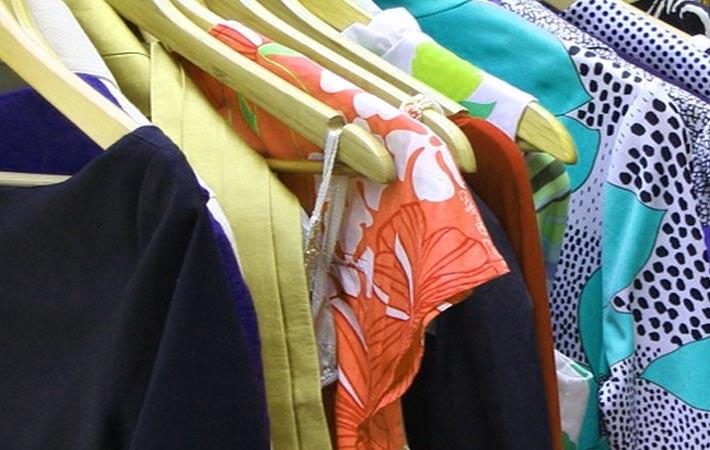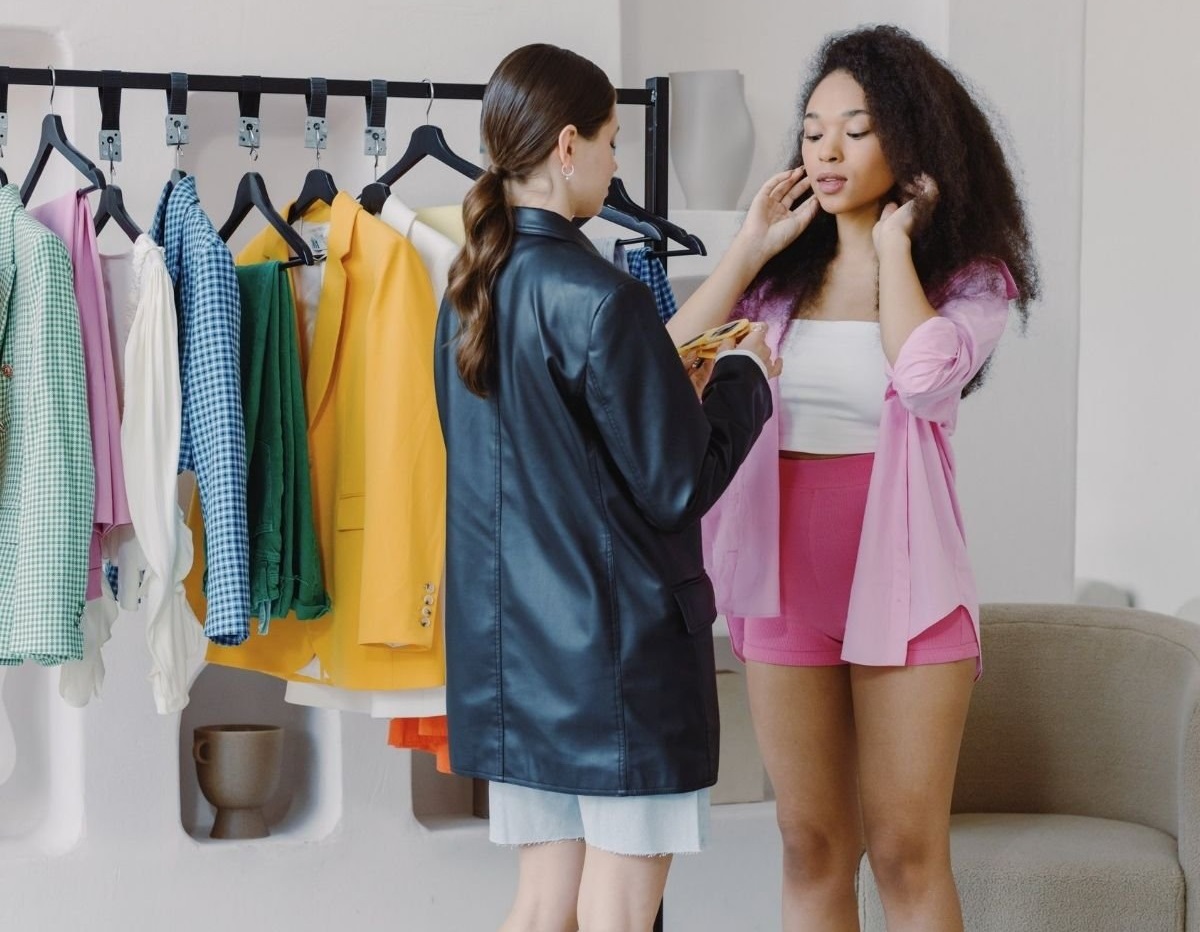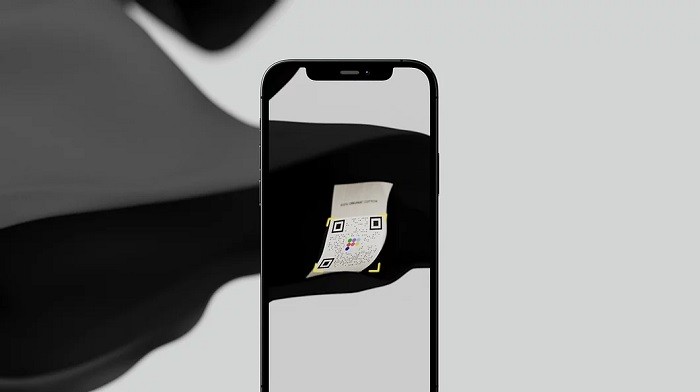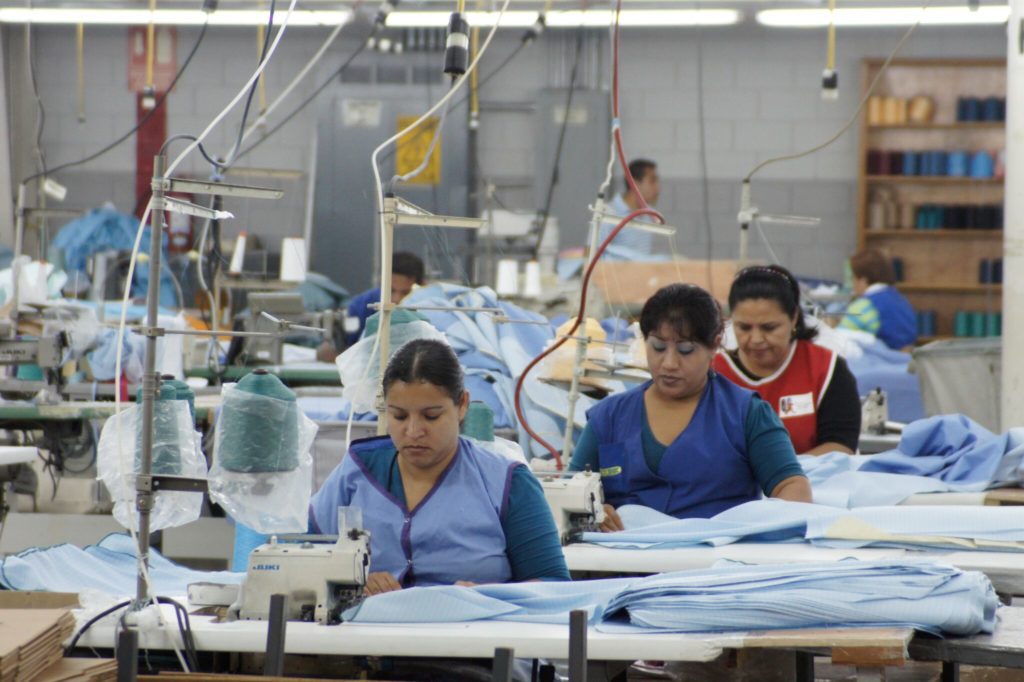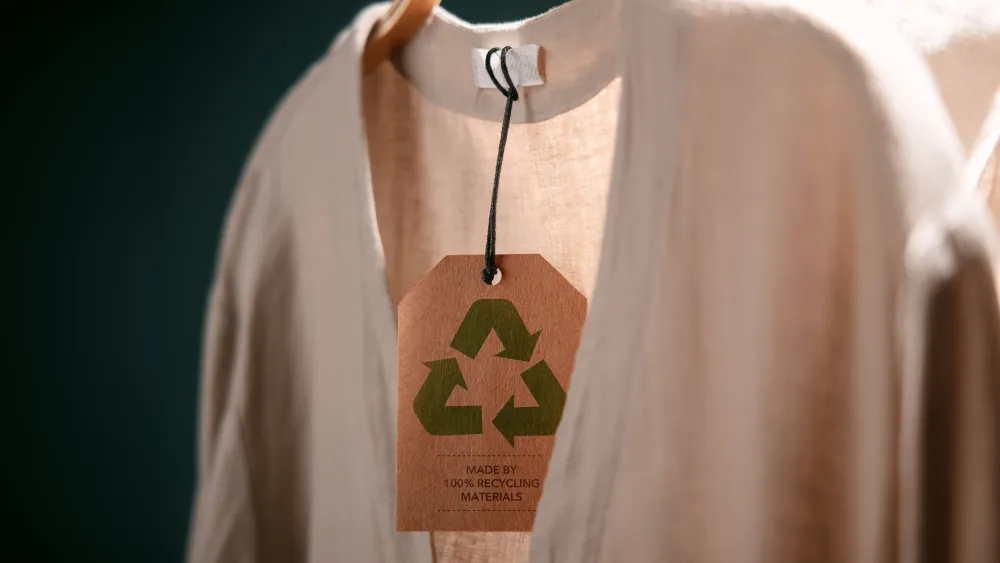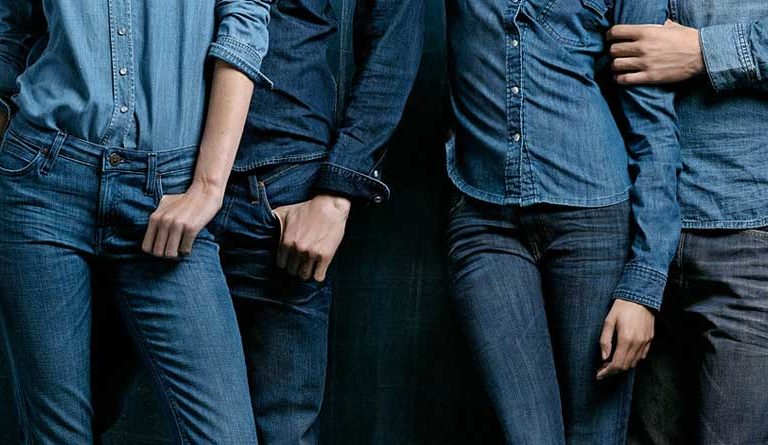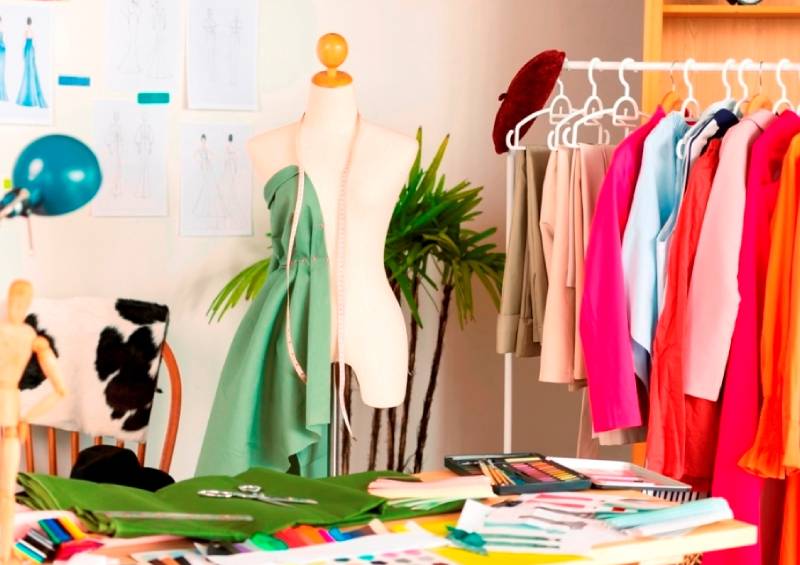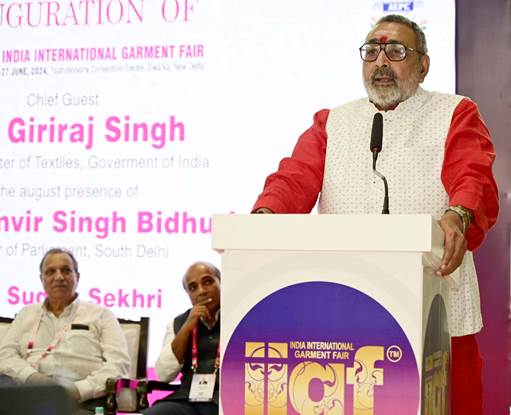FW
The Better Cotton Fast Track Program (BCFTP), whose committee includes Ikea, H&M, VF Corp and Marks & Spencer, has announced 50 Better Cotton projects for this year. Nearly 750,000 farmers, will work to produce nearly one million tons of Better Cotton, with project spending for the year approved for almost €10 million. A project of the Better Cotton Initiative, the BCFTP held an investors meeting in Delhi, , where 50 Better Cotton projects across India, Pakistan, China, Mozambique and Mali were approved.
The committee, which also includes Adidas, Levi Strauss, and public funders Rabobank, ICCO, Solidaridad and IDH, jointly approved spending of €9.6 million for 2014, alongside a country investment strategy, and invited brands involved in the fastrack program to collaborate on future studies. A new ‘Impact on Cotton’ report from ‘Sustainable Trade Initiative’ highlights a rapid growth in market share of sustainably produced cotton, accounting for 3.1 per cent of global cotton production in 2011-2012, more than double compared to 1.3 per cent in 2010-2011. In 2012, the BCFTP licensed approximately 696,000 metric tons of lint.
Founded in 2009, the BCFTP aims to support the objectives of the Better Cotton Initiative and to accelerate its implementation. Looking forward, the BCI aims to have five million Better Cotton farmers producing 8.2 million metric tons of Better Cotton by 2020.
Bettercotton.org
Global manufacturers feel Vietnam is a good place to do business. Cambodia faces labor strikes, Thailand suffers endless protests, Myanmar needs infrastructure upgrade. Vietnam enjoys the advantages of political stability and low costs. It is becoming an important hub for American and European brands. The Trans-Pacific Partnership helps, too. As one of 12 countries negotiating a trade pact, Vietnam stands to benefit most from a clause that would cut tariffs on textiles and apparel, which are among the nation’s top exports. To take advantage of the tax reduction, foreign companies are shifting their factories to Vietnam. And after the shift some of these companies have seen a massive increase in their annual turnover.
The growth is reflected across the country. Textile exports increased 20 per cent in the first quarter of 2014, compared with the same period last year. The upbeat mood was evident at Saigon Tex, a garment and textile expo, April 10 to 13, 2014.
However, there are some weaknesses. Vietnam doesn’t produce enough fabrics and has to buy most of its materials from other countries. There’s an urgent need for technological innovation, improvement of quality control, labor management, environmental management, as well as improvement in the textile and garment supply chain in accordance with international standards. If it doesn’t develop more local suppliers, Vietnam won’t be able to tap the full potential of the Trans-Pacific Partnership.
Indonesia is expecting its textile exports to grow at a faster pace this year, driven by increasing overseas orders particularly from the United States and the European Union. The country’s textile exports were up 1.76 per cent in 2013 from a year earlier, as demand dipped significantly due to the continued global economic slump. Domestic textile manufacturers expect textile exports to be up five per cent this year compared to 2013.
Indonesia and 28 European Union members have planned to resume negotiations on a comprehensive economic partnership agreement after several delays. The deal is estimated to triple Indonesia’s textile exports within five years. The US was Indonesia’s top destination for textile exports, purchasing $4.1 billion worth of textile products. Indonesia controlled a 4.9 per cent share in the US market throughout last year. Japan and Turkey became the second and third main export markets. Japan would continue playing a key role to boost exports this year thanks to the trade deal that Indonesia implemented with the East Asian country since 2008.
Other traditional markets, such as Middle East and African countries, would also help drive exports. Aside from textile exports, Indonesia also sees a brighter outlook in the domestic market this year, anticipating sales to expand by approximately 7 per cent.
Archroma, a global leader in color and specialty chemicals, the former textile, paper and emulsions arm of Clariant will have a presence at Indo Intertex 2014 with eco-advanced innovations. Indo Intertex will be held in Indonesia from April 23 to 26, 2014. This is Indonesia's leading textile and garment machinery exhibition. It will be concurrent with Inatex for textile products and Indo Dyechem for chemical and dye-stuff.
Archroma’s value-adding textile dyes, chemicals and services promote the creation of exciting, quality textiles using more environmentally-friendly and sustainable manufacturing processes. From yarn to cotton flocks, to terry towels, woven and knitwear, the Blue Magic process allows savings of up to 50 per cent in water, 40 per cent in energy and 50 per cent in time. Blue Magic is a one-product solution for discontinuous pretreatment that achieves an advanced brightening effect as well as providing higher productivity, simplified handling, better uniformity and improved dyeability.
Optisul C dyes for denim enable manufacturers to expand their color horizons with a new range of six dyes especially designed to produce soft denim colors in continuous dyeing processes. Innovative water and soil management finishing technology is offered by Archroma’s expanding range of next generation C6-based fluoro chemicals Nuva N for state-of-the-art stain management.
Archroma
www.indointertex.com/, archroma.com/
Giusy Bettoni and C.L.A.S.S. (Creativity Lifestyle and Sustainable Synergy) are participating in ongoing fashion week in Ljubljana being held from April 14 to 16, 2014. They are showcasing sustainable fashion at the ‘Italian Festival in Slovenia’ today, organized by The Italian Trade Agency (ICE) and by Adria Media Ljubljana.
Giusy Bettoni presents the trends of Italian eco-sustainable fashion bringing a selection of brands that have been working for long to offer contemporary design and quality but under the respect of a correct use of raw materials and of production processes.
Brands Bioneuma, Goodsociety, Na2rale, Opificio V, Retro, Silenzio Stampa, will show in front of a wide audience consisting of industry professionals and other delegates at the Kino Siska, centre of the Slovenian Fashion Week. The presentation will be the renewed occasion of collaboration between C.L.A.S.S. and The Italian Trade Agency (ICE) office of Ljubljana, to show that fashion today can definitely be a blend of creativity, innovation and responsibility.
Milano Unica, the semi-annual trade show dedicated to the textile industry, will be held in Milan, Italy from September 9 to 11, 2014. The main objective is to showcase Fall/Winter trends for 2015-16. Milano Unica presented the Fall/Winter directions characterized by boldness and experimentation. Much like the earlier three editions, the presentation was held in the presence of exhibitors, specialized press, designers and product experts from the foremost fashion houses and style studios on both the domestic and international levels.
This edition will focus on a mix of materials like lace with neoprene, mohair with crystals, and melton with vinyl. Color flash with thermo-pigmentation, intarsia, ribbon trim; density from felting, bonding with membranes, resins; brilliance with plasticized, laminated, crystallized surfaces. Structures in motion like radial quilting, progressive crinkling, curved pleating and a blend of accessories.
The season will be marked by healthy individualism, with a strong sense of personal, where the spirit of each individual will be able to thrive using experimentation and daring. The themes of the season are masculine aura and grand vision. Colors feature 26 tones divided into four ranges: frozen, digital, eclectic and contemporary. The Trend Area is an added plus at the fair.
www.milanounica.it/ENG/home.php
Sutlej Textiles and Industries have been in talks with the Ethiopian government to set up a textile plant for the past seven months. But have reached no positive conclusion owing to high construction and transportation costs in the country. Sutlej has an annual turnover of Rs 20 billion.
If Ethiopian government officials agree to reduce costs, then the company is keen on making an initial investment in 25,000 spindles immediately and increase it to 50,000 spindles in the second phase. Sutlej plans to submit their formal business proposal to the government in a month or two.
At present, almost 15 foreign textile companies mainly from South Korea and India are awaiting for the completion of construction work of the Bole-Lemi industrial zone located east of the capital. Some of these companies have already made initial payments and some have also begun installing machineries in the new sheds for production.
Sutlej officials are contemplating a fresh round of meeting with the Ethiopian minister for agriculture to get acquainted with the federal and regional set up. As the earlier meetings with both federal and local government officials about accessing a plot of land was not successful. If this round of meeting goes well, Sutlej would invest in 200 acres of land to build a textile plant.
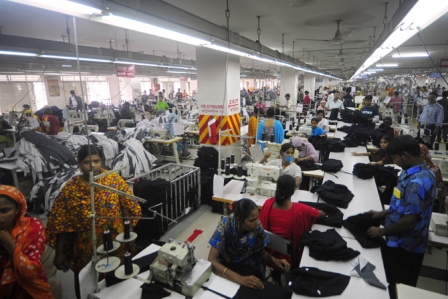 Bangladesh RMG industry continues to be under global pressure to improve compliance and fire safety levels after the recent calamities at Tazreen Fashions and Rana Plaza, which claimed several lives. Local and international stakeholders including Accord, Alliance, foreign buyers and International Labour Organization (ILO) are continuously monitoring the progress on factory safety in Bangladesh.
Bangladesh RMG industry continues to be under global pressure to improve compliance and fire safety levels after the recent calamities at Tazreen Fashions and Rana Plaza, which claimed several lives. Local and international stakeholders including Accord, Alliance, foreign buyers and International Labour Organization (ILO) are continuously monitoring the progress on factory safety in Bangladesh.
However, Bangladesh garment factory owners say the cost of doubling wages is over bearing as many global retailers refuse to increase prices and threaten to shift sourcing to other nations offering lower rates. Such a situation is leaving less money for safety improvements urged by apparel chains.
Coping with a 79 per cent increase in minimum monthly wage to $68 is a burden for Bangladesh garment factories in the face of growing competition from other emerging markets producing garments for stores like Walmart and Zara. The situation is squeezing sales in Bangladesh's main export industry.
As per Bangladesh Garment Manufacturers and Exporters Association (BGMEA) and  Bangladesh Knitwear Manufacturers and Exporters Association (BKMEA), more than 2,500 garment owners including woven and knitwear have agreed to invest Tk 80 billion for fulfilling compliances and fire safety conditions. But simultaneous doubling of wages and supplying products at lower rates are making things difficult for the industry.
Bangladesh Knitwear Manufacturers and Exporters Association (BKMEA), more than 2,500 garment owners including woven and knitwear have agreed to invest Tk 80 billion for fulfilling compliances and fire safety conditions. But simultaneous doubling of wages and supplying products at lower rates are making things difficult for the industry.
Workers' safety system, fire-fighting equipment, evacuation mechanism, proper installation of machines and healthy work environment are among the social compliance issues demanded by the international companies and NGOs. Garment makers are now bound to seriously look into the safety issues for their own survival.
Tragedy hits exports and profit margins
After almost a year of the Rana Plaza building collapse in Dhaka's Savar district, killing more than 1,100 workers, Bangladesh's garment export growth has slowed to the lowest rate in 15 years. Buyers have shifted to countries like India, Vietnam, Indonesia and Cambodia because of concerns about workshop safety, higher wages and political uncertainty.
The Rana Plaza collapse, on April 24, 2013 attracted global attention to the poor working conditions in Bangladesh. US and European retailers responded by forming groups to push for better safety standards and regular inspections.While the US-based Alliance for Bangladesh Worker Safety has claimed to have funded more than $100 million to Bangladesh factories to help pay for safety improvements, the Bangladesh Accord on Fire and Building Safety, which was set up after Rana Plaza and counts many European retailers among its signatories, also plans to make an unspecified amount of low-cost loans available to help factories pay for upgrades.
Help pours in but not enough
Apart from Primark, five global clothing brands and retailers have raised $40 million for victims of Rana Plaza. The companies are: El Corte Inglés; Inditex, which includes the brand Zara; Loblaw; Mango and Mascot. Now labour groups are pressurizing companies like Walmart, Children's Place and Benetton, which were linked to Rana Plaza tragedy. Bangladeshi RMG exports have lost steam over the past four months, growing at just 7.1 per cent in January compared to the same month a year earlier.
The Washington-based International Labour Rights Forum has said that while it is commendable that brands are willing to help, further steps must be taken. It has urged brands and retailers to voluntarily pay higher prices for apparel products, so that the factories are able to pay workers. The organization has also asked them to develop long-term relationships with suppliers instead of hobnobbing across countries looking for lower rates.
According to Asia Floor Wage, developing countries such as Bangladesh and Cambodia would be able to progress to the next economic level only when the issue of low wages is amicably resolved. And for that, it points out that the garment-producing countries must take wage completely out of the competition and start competing instead on logistics or raw material supplies.
www.bgmea.com.bd
Senol Sankaya, CEO of Turkish knitted garments producer Yesim Tekstil has been elected to the board of managers of the International Apparel Federation (IAF) for the second time. IAF is one of the largest federations for apparel and garment industry. Sankaya, who is also the Chairman of Uludag Exporters Union for Apparel and Ready Wear (UHKİB), will continue to represent the Turkish apparel sector at the international level.
In 2010, after Hasan Arat and Umut Oran, Sankaya represented Turkey in the board of managers of IAF, established in 1976 by a group of apparel sector representatives from America, Europe and Japan. With many members around the world, IAF organises congresses, meetings and publishes reports in order to provide direction and information to the companies in the apparel sector. The federation, which also creates an important global information network for the apparel sector, provides the platform to its customers to monitor developments in the sector.
Yesim Tekstil has a daily production capacity of 55 tons of knitted products, 70 tons dyed, 100,000 metres of printed fabric, 150,000 pieces of garments and 60,000 pieces of home textiles. Being one of the four largest fully integrated yarn-to-finished-product facilities under one roof, the company is one of Turkey’s largest firms. A production partner of the Nike brand since 2005, Yesim Tekstil also manufactures for internationally renowned brands such as Gap, Banana Republic, Old Navy, Zara, Pull & Bear, Massimo Dutti, Esprit, Hugo Boss, Lands' End, Tchibo and Schlafgut.
Iafnet.eu
www.yesim.com.tr
On April 24, the 3rd edition of sustainable fashion event, 'Copenhagen Fashion Summit' will take place in Denmark. This is the platform where leading voices from the world of fashion, luxury, business and enterprise meet to discuss the fashion industry’s social and environmental responsibility and solutions. Première Vision has been chosen to represent the textile industry during the summit.
Première Vision, organisers for the last few seasons have been observing how weavers and fabric designers tend to develop new products with a will to be both creative and sustainable. And now it wishes to speak out on these new opportunities, which has already been voiced through conferences, collaborations and different actions during its shows.
In Copenhagen, Chantal Malingrey, Marketing and Development Director of Première Vision will join a panel discussion with other experts from luxury and commercial fashion, as well as NGOs and media to discuss how changes and moves can be made in the industry towards sustainability and responsibility, starting with fabrics and materials.
The panel discussion moderated by Vanessa Friedman, Fashion Editor, Financial Times will include panelists like: Marco Lucietti, Global Marketing Director, ISKO, Giusy Bettoni, CEO and Founder, C.L.A.S.S. and Catarina Midby, Head of Sustainable Fashion, H&M.
www.copenhagenfashionsummit.com

